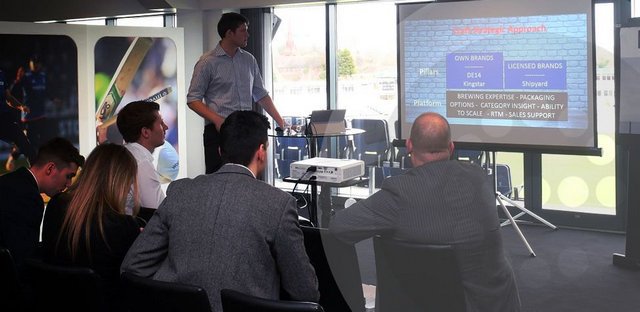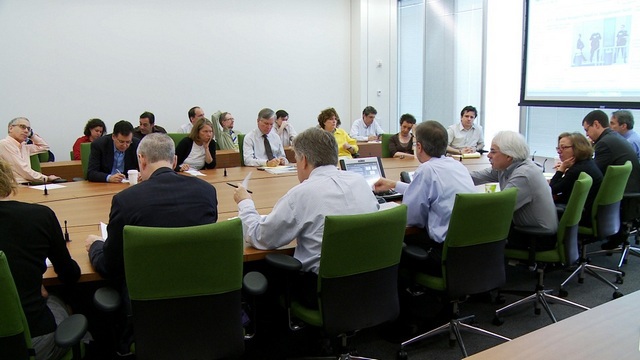
Mastering Effective Team Meetings: 8 Tips for Success

Effective team meetings can drive organizational success Our 8 tips include preparation, clear agenda, limiting meetings, focus, vulnerability, participation, and punctuality
Effective meetings can contribute to the achievement of an organization's goals and objectives by providing a forum for discussing important issues and generating positive outcomes through interactive sessions. While not every meeting may produce the desired results, team meetings can foster a sense of shared ownership and group effort towards common goals, promoting a spirit of collaboration and teamwork. To ensure that group meetings are efficient, various strategies can be employed.
Some of these ways include the following;
8 Tips For A Great Team Meeting
1) Be sufficiently prepared
Preparation is key to holding an effective group meeting. Make sure to have a clear agenda and all necessary materials ready to facilitate the discussion. Without proper preparation, group meetings can be challenging as individuals may have differing opinions and reactions to various topics.
Thus, it is crucial to make sure that the topics to be discussed in a team meeting are relevant and appealing to all members. This will encourage everyone to actively participate and engage in the meeting, ultimately driving the organization towards progress. Team meetings can serve as a valuable platform to move the organization forward.
2) Come up with a clear agenda
Having a well-defined agenda is crucial for any successful group meeting. Without one, the meeting can quickly become disorganized and inefficient. Proper preparation, including creating an agenda, is key to ensuring that all attendees are on the same page and that the meeting achieves its objectives. Therefore, it is essential to devote adequate time to preparing a clear and concise agenda that outlines the meeting's purpose, topics, and expected outcomes.
It's crucial to create a clear agenda for your meeting to ensure that everyone understands the purpose and importance of the discussion. Sharing the agenda with all attendees beforehand can encourage participation and make the meeting more productive and engaging.
Organizing formal meetings can often be a tedious task, and it is crucial to ensure that they are only called for when necessary. Frequent meetings to discuss the same agenda can become unproductive, resulting in a lack of interest from attendees. To avoid this, it is best to plan meetings occasionally but ensure that the discussion is worthwhile. In the event that a meeting has been scheduled, but there is no clear agenda or the organizer is not prepared, it is recommended to cancel and reschedule. This approach can prevent suboptimal results and save valuable time and resources.
4) Restrict meeting to discussions alone
Calling for a team meeting solely to present figures and statistics may not always be the most effective approach. While it can be important to share data, it's important to consider whether or not everyone in attendance will be able to engage with the information. Instead of simply presenting the data, it's often more beneficial to initiate a discussion around it. This allows everyone to contribute their ideas on how to improve and work towards common goals. By doing so, you can ensure that your team meetings are productive and focused on achieving results.
5) Maintain focus
6) Be a vulnerable leader
It is important to maintain focus on the agenda during the meeting. While occasional lighthearted discussions may help to break up the monotony, they should not distract from the intended topics at hand. It is crucial to avoid giving too much time to non-issues, as this can hinder effective discussion of the real issues when it matters most. Therefore, it is advisable to adhere to the predetermined script and allow members to discuss each agenda item accordingly.
During meetings with your team, avoid positioning yourself as the sole authority who dictates all rules and discussions. Instead, encourage everyone to participate, ask questions, challenge ideas, and welcome constructive criticism. Create an inclusive environment by letting everyone know that their insights and ideas are valuable contributions towards achieving organizational goals. Acknowledge that people may feel apprehensive about speaking up, especially in the presence of senior leaders. By demonstrating vulnerability, you can put them at ease and encourage them to share their thoughts.
7) Get everyone involved
Meetings have a bad reputation for being tedious, particularly when one individual monopolizes the conversation. For a meeting to be productive, it's crucial that all members contribute and speak up on the issues at hand. The key is to create a welcoming and inclusive environment that encourages participation from everyone.
Ultimately, you will come to the realization that inviting the right people to the meeting is crucial in ensuring its efficiency and productivity. Only those individuals who can contribute to accomplishing the task at hand should be invited.
8) Maintain punctuality
Efficient team meetings are crucial for addressing important issues in a timely manner. To ensure productivity, it is important to start meetings on time and stick to a structured agenda, ensuring that the meeting concludes by the designated end time.
Extended meetings can be counterproductive as attendees may become bored and distracted. As time passes, it becomes increasingly difficult to maintain focus and engagement, leading to a reduction in the overall effectiveness of the meeting. This can be particularly problematic towards the end of the meeting, when attendees may have already mentally checked out, resulting in the loss of any meaningful outcomes.
















